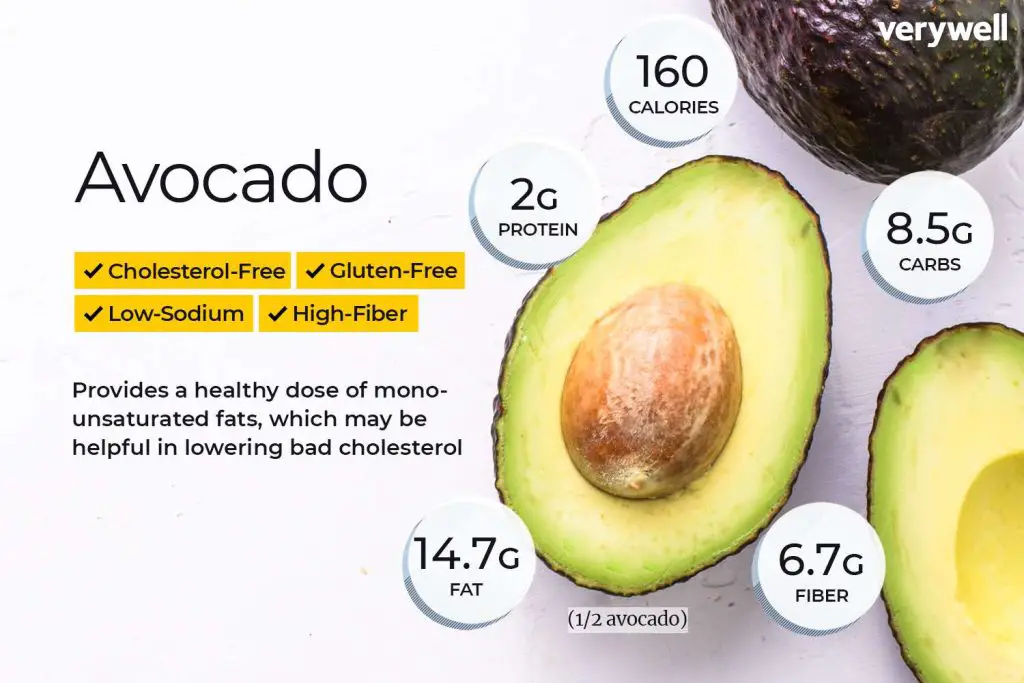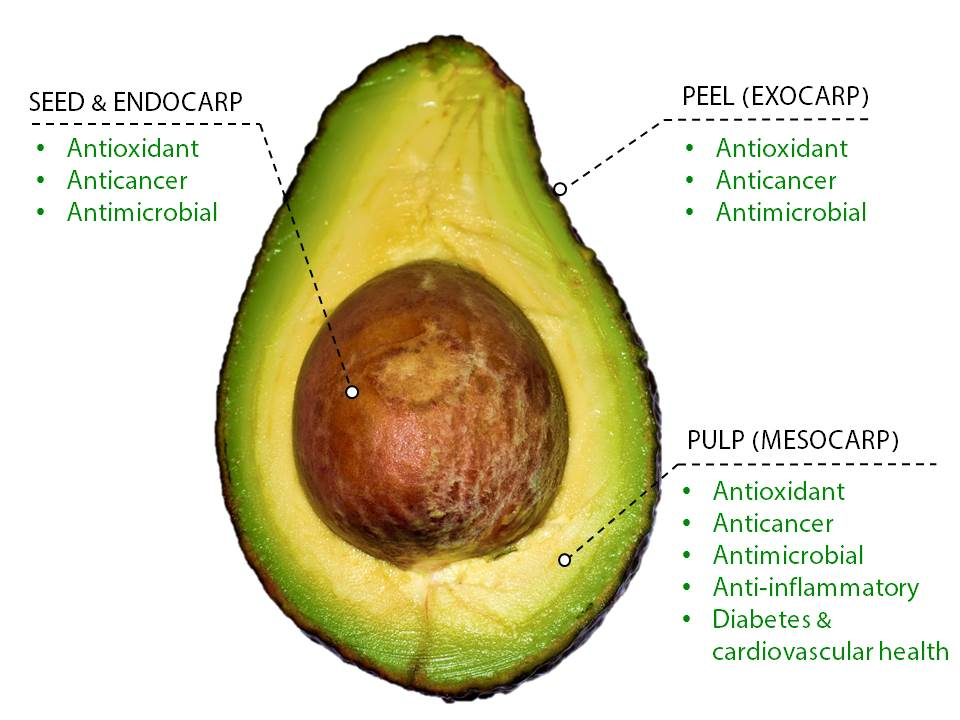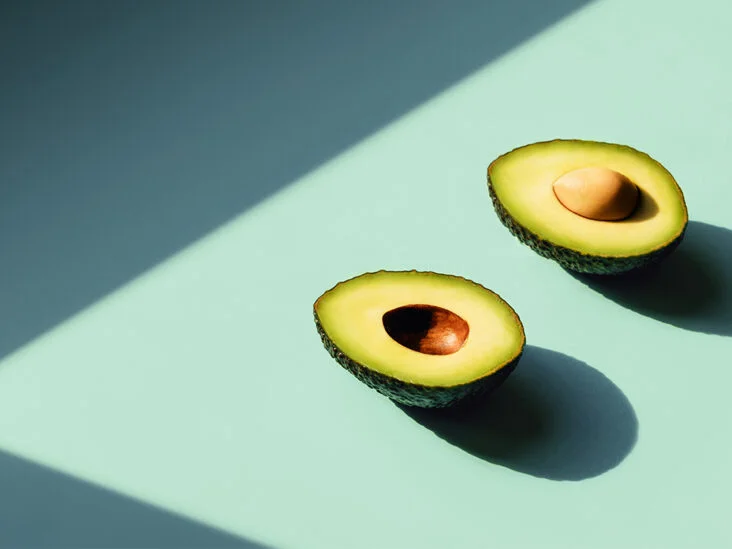Have you ever wondered why eating avocado can make you smell? Avocado, often hailed for its health benefits and delicious taste, has a hidden secret: its unique aroma. This intriguing phenomenon occurs due to the chemical compounds found in avocados, particularly sulfur.
When consumed, these compounds can impact your body odor, leading to an avocado scent. However, don’t worry! Factors such as personal hygiene and individual metabolism also play a role in determining the intensity of the smell.
While some may find it unpleasant, others embrace the distinct aroma of avocados. So, next time you indulge in this beloved fruit, be prepared for your scent to be a little different.
Avocado Scent Explained
Understanding the source of avocado’s distinct scent can help you appreciate its unique aroma. The scent of an avocado comes from a combination of compounds, each contributing to its overall fragrance.
One of the main components responsible for the scent is a chemical compound called hexanal. Hexanal is a volatile compound found in avocados that gives off a grassy, green scent. This compound is formed when the unsaturated fats in the avocado are broken down by enzymes. Another compound contributing to the scent is 2-ethylfuran, which gives the fruit a sweet, caramel-like aroma.
Other compounds, such as the sulfur-containing compounds, also play a role in the scent profile of avocados. These compounds give avocados their slightly pungent and earthy scent. The combination of these various compounds creates the unique and pleasant aroma that makes avocados so enticing. So next time you take a whiff of that rich avocado scent, you can appreciate the complex chemistry behind it.
The Science Behind Body Odor
Get ready to learn about the fascinating science behind why our bodies produce certain odors, and how avocado consumption may or may not play a role! Body odor is caused by the bacteria that live on our skin and feed on our sweat.
When these bacteria break down sweat, they release compounds that give off unpleasant smells. However, body odor can also be influenced by hormonal changes in the body.

The primary cause of body odor is bacterial activity. Our skin is home to millions of bacteria that thrive in warm, moist environments like our armpits and groin area.
These areas are particularly prone to bacterial growth because they have more sweat glands than other parts of our body.
When we exercise or become stressed, we produce more sweat which provides an ideal environment for bacteria to flourish.
Hormonal influences can also affect body odor. For example, during puberty, hormones stimulate the production of apocrine glands which are found in the armpits and genital area.
These glands secrete a thicker type of sweat that provides an even better breeding ground for bacteria than regular sweat.
Hormonal changes during menstruation or menopause can also affect body odor since they alter the chemical makeup of sweat produced by apocrine glands.
While there isn’t much research on how avocado consumption affects body odor specifically, it’s possible that its high fat content could potentially contribute to increased sweating and therefore make you smellier if consumed in excess!
The Role of Sulfur in Avocado Smell
To understand why avocados have a distinct smell, you need to know the role that sulfur plays in creating their aroma. Sulfur is a chemical element that is present in avocados, and it is responsible for the pungent odor that many people associate with this fruit.
When avocados are cut or bruised, enzymes in the fruit break down sulfur-containing compounds, releasing volatile sulfur compounds (VSCs) into the air. These VSCs are the main contributors to the strong smell of avocados.

The presence of sulfur in avocados is not unusual. In fact, many fruits and vegetables contain sulfur compounds, which can give them a characteristic smell. In avocados, the sulfur compounds are mainly found in the flesh, but they can also be present in the skin and seeds.
The exact composition of these sulfur compounds can vary depending on factors such as the variety of avocado and its ripeness.
Although the smell of avocados can be strong, it is important to note that it is not harmful.
In fact, many people find the smell of avocados pleasant and appetizing. So, the next time you encounter the distinct aroma of avocados, remember that it is the result of sulfur compounds at work.
Avocado’s Impact on Body Odor
Curious about how avocados can affect your body odor? Well, it turns out that what you eat can actually have an impact on the way you smell. Avocados, in particular, have been found to alter body odor in some individuals. Here’s what you need to know:

- Avocado consumption can lead to a more pleasant body odor: Studies have shown that people who regularly consume avocados tend to have a more pleasant and less offensive body odor compared to those who don’t.
- Avocados contain certain compounds that can affect body odor: Avocados are rich in sulfur-containing compounds, such as thiols and sulfides, which are known to influence body odor. These compounds can be released through the sweat glands and contribute to the overall scent of your body.
- The effect of avocados on body odor varies from person to person: While some individuals may experience a positive change in their body odor after eating avocados, others may not notice any difference at all. It ultimately depends on factors such as metabolism and genetics.
- Maintaining good hygiene is still important: While avocados may have an impact on your body odor, it’s important to remember that personal hygiene plays a significant role as well. Regular showering, using deodorant, and wearing clean clothes are essential for maintaining a fresh and pleasant scent.
Factors That Influence Avocado Odor
One factor that influences the odor of avocados is the ripeness of the fruit. When avocados are unripe, they tend to have a mild, almost odorless scent. As they ripen, however, the odor becomes more pronounced.
Ripe avocados emit a distinct, earthy aroma that is often described as buttery or nutty. This change in odor is due to the breakdown of certain compounds in the fruit as it ripens.
Another factor that can influence the odor of avocados is the presence of any external factors, such as other foods or spices. Avocados have a porous skin, which means they can absorb odors from their surroundings.

If they are stored alongside strong-smelling foods, they may take on some of those odors. For example, if you store avocados near onions or garlic, they may develop a slightly pungent smell.
Lastly, the freshness of the avocado can also impact its odor. An avocado that is past its prime may have a slightly off or unpleasant smell. It is important to check for any signs of spoilage, such as a sour or fermented scent, before consuming the fruit.
Avocado-Smelling Sweat: Myth or Reality
Does eating avocado really make you sweat smell like the fruit? You may have heard rumors about the connection between avocado consumption and the scent of your perspiration. But is this claim supported by scientific evidence? Let’s delve into the truth behind the myth.
Here are some key points to consider:
- Sweat composition: Sweat is primarily composed of water and salt, with trace amounts of other substances. While your diet can influence the overall scent of your sweat, it is unlikely that eating avocado alone would cause your sweat to smell like the fruit.
- Individual variation: Each person’s body chemistry is unique. Some individuals may notice changes in the scent of their sweat after consuming certain foods, including avocado. However, this effect is not universal and may vary from person to person.
- Digestive process: Avocado is a nutrient-dense fruit that contains healthy fats. When these fats are broken down during digestion, they are metabolized and absorbed into the bloodstream. Any residual odor from avocado would be eliminated through this process, rather than being excreted through sweat.
- Personal hygiene: Good personal hygiene practices, such as regular bathing and the use of deodorant, can greatly reduce any potential odor associated with sweat. Maintaining proper hygiene is essential regardless of your diet.
To better understand how different factors affect your body odor, take a look at this table:
| Factor | Effect |
|---|---|
| Stress | Increases apocrine sweat production |
| Diet | Foods high in sulfur compounds can increase body odor |
| Genetics | Can determine how much individuals naturally smell |
By understanding what affects your body odor and taking steps to mitigate it (such as using deodorant), you’ll feel more confident going about your day-to-day activities.
Remember that everyone has their own unique scent due to genetic differences but paying attention to the factors discussed above will help keep any unwanted odors under control!
Can You Get Rid of Avocado Smell
To eliminate the smell of avocado, try using these effective methods:
- Lemon juice: Squeeze fresh lemon juice onto your hands and rub them together. The acidity of the lemon can help neutralize the avocado scent.
- Baking soda: Create a paste by mixing baking soda with water. Apply the paste to your hands and scrub gently. Rinse off with warm water to remove any lingering avocado odor.
- Coffee grounds: Rub a handful of coffee grounds on your hands and rinse with warm water. The strong aroma of coffee can help mask the avocado smell.
- Vinegar: Mix equal parts vinegar and water in a bowl. Soak your hands in the mixture for a few minutes, then rinse with warm water. Vinegar is known for its ability to eliminate odors.
These methods can be used not only on your hands but also on cutting boards, utensils, and other surfaces that have come into contact with avocado.
Remember to wash your hands thoroughly with soap and water after using these methods. Additionally, proper ventilation in your kitchen can also help dissipate the avocado smell.
With these simple techniques, you can say goodbye to the lingering scent of avocado and enjoy your meal without any unwanted odors.
Avocado-Smelling Breath: a Side Effect
Avocado can contribute to bad breath. Yes, you read that right. While avocado is delicious and nutritious, it can leave you with less-than-pleasant breath. This side effect occurs because avocados contain sulfur compounds, which can give your breath an unpleasant odor. When you consume avocados, these sulfur compounds are broken down by the bacteria in your mouth, releasing volatile sulfur compounds (VSCs) that can cause bad breath.
The sulfur compounds in avocados are similar to those found in garlic and onions, which are notorious for causing bad breath. So if you’ve ever noticed that your breath smells a little funky after enjoying some guacamole or avocado toast, now you know why.
Fortunately, there are ways to combat avocado-smelling breath. The first step is to practice good oral hygiene. Brushing your teeth, flossing, and using mouthwash can help remove any lingering avocado residue and bacteria from your mouth. Additionally, staying hydrated can help flush out any odor-causing compounds.
If you’re concerned about having avocado-smelling breath, you can also try chewing sugar-free gum or eating breath-freshening foods like parsley or mint. These can help mask any unpleasant odors and leave your breath smelling fresh.
Avocado Smell and Personal Hygiene
Maintaining proper personal hygiene is essential for preventing the lingering smell of avocados. To ensure you stay fresh and odor-free, follow these simple tips:
- Brush your teeth: Avocado-smelling breath can be quite unpleasant. Make sure to brush your teeth thoroughly, especially after consuming avocados. Use a mint-flavored toothpaste to mask any lingering odors.
- Wash your hands: Avocado residue can cling to your hands, leaving a distinct smell. Wash your hands with soap and warm water to remove any traces of avocado and eliminate the odor.
- Shower regularly: Avocado oils can stick to your skin and cause an unwanted smell. Take regular showers using a fragrant body wash to cleanse your body and get rid of any avocado residue.
- Choose fresh clothing: Wearing clothes that have absorbed the avocado smell can be off-putting. Opt for fresh, clean clothes that haven’t been exposed to avocados to prevent the odor from lingering.
Frequently Asked Questions
How long does it take for the smell of avocado to wear off?
After eating avocado, the scent duration may vary depending on your body and hygiene routine. Use soap and water to remove any lingering fragrance. Alternatively, try lemon juice or baking soda mixed with water as natural removal techniques.
Can eating other types of foods also cause body odor?
Sweat-causing foods can affect body odor. Your diet plays a role in the scent your body emits. Consuming certain foods, like garlic and onions, may result in an unpleasant odor.
What are some natural remedies for reducing body odor?
Looking for natural remedies to reduce body odor? Try incorporating essential oils like lavender or tea tree into your hygiene routine, and making dietary changes such as reducing processed foods and increasing water intake.
Are there any skincare products that can help prevent body odor?
Looking for deodorant alternatives? Try DIY remedies like apple cider vinegar or witch hazel. Skincare products with antibacterial properties, such as tea tree oil, can also help prevent body odor. No need to worry about avocado here!
Can wearing certain fabrics contribute to body odor?
Certain fabrics, such as polyester or nylon, can trap sweat and bacteria leading to body odor. Antiperspirants can reduce sweating, but effectiveness varies. Experiment with different fabric types and antiperspirant brands to find what works best for you.
Amazon and the Amazon logo are trademarks of Amazon.com, Inc, or its affiliates.

